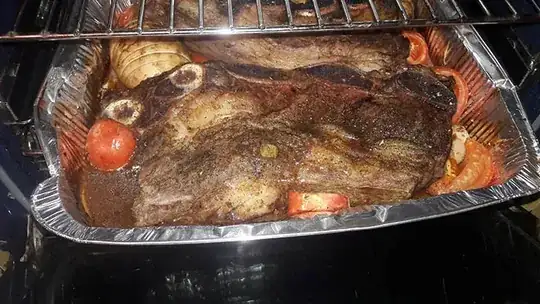I have been cooking this meat
 in 200-250f for hours. But its still very tough. It doesnt stand the fork test.
in 200-250f for hours. But its still very tough. It doesnt stand the fork test.
Why? Could it be because the collagen needs lower temperatures to break down?
I have been cooking this meat
 in 200-250f for hours. But its still very tough. It doesnt stand the fork test.
in 200-250f for hours. But its still very tough. It doesnt stand the fork test.
Why? Could it be because the collagen needs lower temperatures to break down?
When you're cooking something like a steak, or a prime rib roast and aim for a cooking temperature of say 135ish, you want it to be medium rare. The goal isn't to break anything down. Collagen starts to break down slowly above 160F, and will melt much more rapidly closer to 180F.
Further more, iff you have any cut of meat that requires breakdown of collagen, measuring the temperature is an insufficient indicator of done-ness.
. Collagen breakdown is a function of temperature and time. The lower the temperature, the longer it takes to break down, but it will still eventually break down. This is what makes tenderizing a brisket in a 155°F water bath possible, given enough time. Taken from this article on Serious Eats: The Food Lab
Taking a look at a random sampling of short rib recipes (I'm assuming that's what you have), at 300-350F, cooking times are in the 3-4 hour mark. At 200-250F, I'd expect much longer.